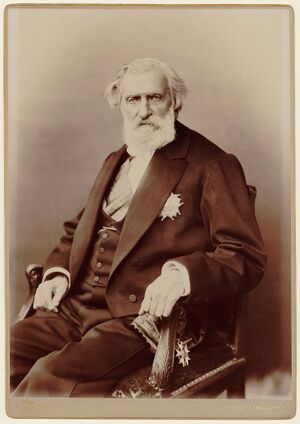Ambroise Thomas
French composer and teacher (b. 5 August 1811 [N.S.] in Metz; d. 12 February 1896 [N.S.] in Paris), born Charles Louis Ambroise Thomas.
The son of two music teachers, Ambroise exhibited a talent for the violin and piano by the age of ten, and in 1828 he enrolled at the Paris Conservatory, studying composition with Jean-François Le Sueur (1760–1837) and piano with Friedrich Kalkbrenner (1785–1849). In 1832, he won the Prix de Rome with his cantata Herman et Ketty, and during his ensuing three-year stay in Rome his compositions impressed Hector Berlioz.
In 1856, he became a professor at the Paris Conservatory, and in 1871 he succeeded Daniel-François-Esprit Auber as director of the institution, remaining in the post for a quarter-of-a-century until his death. As a composer, Thomas is best remembered for his operas Mignon (1866) and Hamlet (1868), and Tchaikovsky was extremely critical of the latter in an 1872 music review article (see TH 272).
Correspondence with Tchaikovsky
3 letters from Tchaikovsky to Ambroise Thomas have survived, dating from 1889 to 1890, all of which have been translated into English on this website:
- Letter 3935a – 13/25 September 1889, from Moscow
- Letter 4030 – 10/22 February 1890, from Florence
- Letter 4136a – 4/16 June 1890, from Frolovskoye
One letter from Ambroise Thomas to Tchaikovsky, dating from 1890, is preserved in the Russian State Archive of Literature and Art in Moscow.

